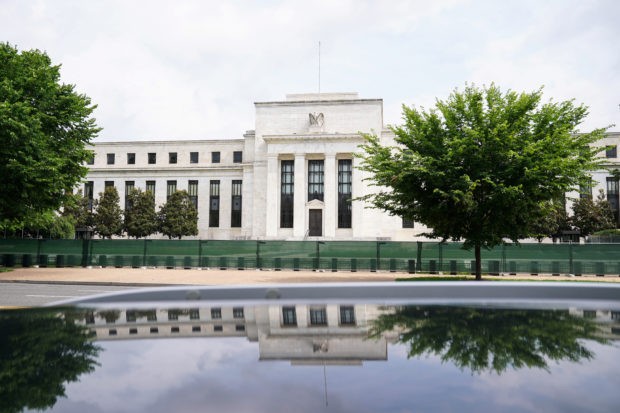LONDON – The pace and scale of rate hikes delivered by central banks in November picked up speed again as policy makers around the globe battle decade high inflation.
Central banks overseeing six of the 10 most heavily traded currencies delivered 350 basis points (bps) of rate hikes between them last month.
The U.S. Federal Reserve, the Bank of England, the Reserve Bank of Australia, Norway’s Norges Bank, Sweden’s Riksbank and the Reserve Bank of New Zealand all raised interest rates in November.
The European Central Bank, the Bank of Canada, the Swiss National Bank and the Bank of Japan did not hold rate setting meetings in November.
The latest moves have brought total rate hikes in 2022 from G10 central banks to 2,400 bps.
“Interest rates will continue to rise,” said Alexandra Dimitrijvic at S&P Global Ratings, looking ahead to 2023. “Central banks’ determination to bring down inflation suggests that policy rates need to go higher still.”
Global financial markets have been on a roller coaster in recent weeks as investors try to gauge how fast and how far the U.S. Federal Reserve and other major central banks are set to raise rates to combat inflationary pressures, while fears over a slowdown in global growth are spreading.
Some nascent signs that inflation could be slowing in the United States have brought cheer to markets in recent days, with Fed officials scheduled to meet on Dec. 13 and 14.
On Wednesday, Fed Chair Jerome Powell said the U.S. central bank could scale back the pace of its rate increases “as soon as December”.
Data from emerging market central banks showed a similar pattern. Eight out of 18 central banks delivered a total 400 bps of rate hikes in November – up from 325 bps in October, but some way off the 800-plus bps monthly tallies in both June and July.
Indonesia, South Korea, Mexico, Thailand, Malaysia, the Philippines, Israel and South Africa all hiked rates in November, showing the wave of policy tightening shift towards Asia and away from Latin America and emerging Europe, where the cycle is nearing its end.
“With the exception of a few countries, we are past the most intensive phase of the rate hike cycle,” said Nafez Zouk at Aviva Investors.
Outlier Turkey, where President Tayyip Erdogan is pushing for lower interest rates, delivered another 150 bps benchmark cut to bring rates down to single digits, despite inflation running at above 80 percent.
Not all emerging market central banks in the sample had rate setting meetings last month.
Emerging market central banks have raised interest rates by a total of 7,165 bps year-to-date, more than double the 2,745 bps for the whole of 2021, calculations show.
Read Next
Subscribe to INQUIRER PLUS to get access to The Philippine Daily Inquirer & other 70+ titles, share up to 5 gadgets, listen to the news, download as early as 4am & share articles on social media. Call 896 6000.
For feedback, complaints, or inquiries, contact us.
For all the latest Business News Click Here
For the latest news and updates, follow us on Google News.

